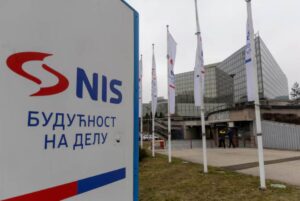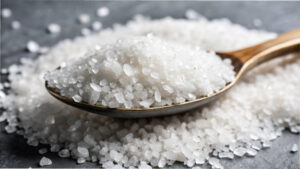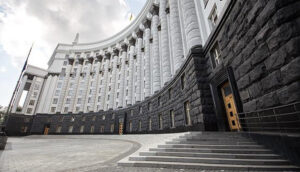
According to Serbian Economist, the Office of Foreign Assets Control of the US Department of the Treasury (OFAC) has issued a temporary license to Serbian oil company NIS, controlled by Russian shareholders, to continue operating until January 23, 2026, said Serbian Minister of Mining and Energy Dubravka Djedovic-Handanovic.
According to her, the decision means the resumption of operations at the Pančevo refinery after a 36-day pause. U.S. restrictions, which came into effect in the fall, had earlier blocked oil supplies via the refinery’s only crude import route – through Croatian pipeline operator JANAF.
NIS operates a refinery with a capacity of 4.8 million tons per year and the largest network of gas stations in Serbia (327 stations), providing about 80% of fuel consumption in the domestic market.
Earlier OFAC gave NIS a deadline of March 24 to negotiate the sale of the Russian owners’ stake; in the company’s capital structure Gazprom owns 11.3%, Gazprom Neft – 44.9%, the Serbian state owns 29.9%. Serbian President Aleksandar Vucic reported that Gazprom was in talks with Hungary’s MOL about a possible deal.
https://t.me/relocationrs/2042

Ukraine ranked fifth among countries that were sources of accumulated foreign direct investment (FDI) in Cyprus in 2024, reports the Experts Club information and analytical center.
The total volume of accumulated inward FDI in 2024 is estimated at €365.07 billion, with Ukraine accounting for €10.64 billion, or 3% of the total.
Russia remains the largest source of investment with €83.46 billion (23%), followed by the United States with €66.57 billion (18%), Luxembourg with €32.10 billion (9%), the United Kingdom with €17.17 billion (5%), Ukraine – €10.64 billion (3%), the Netherlands – €6.90 billion (2%), and Israel – €5.10 billion (1%).
In addition, the data mentions the Cayman Islands (€8.4 billion), other countries in the Middle East (€7.6 billion), the Marshall Islands (€3.5 billion), and the British Virgin Islands (€2.4 billion).
The Central Bank of Cyprus also notes a decrease in the total volume of accumulated FDI: from €489.4 billion in 2022 to €394.0 billion in 2023 and €365.07 billion in 2024; The figure for Russia for this period fell from €135.7 billion to €83.46 billion.
The Central Bank of Cyprus notes that this refers to FDI “positions” (the accumulated volume of equity participation and intra-corporate loans), rather than new investment flows into the real economy.

The Cabinet of Ministers of Ukraine has maintained zero quotas for the export of natural gas of Ukrainian origin in 2026, according to Government Resolution No. 1795 of December 31 on the list of goods whose export and import are subject to licensing and quotas.
According to the document, exports of natural gas of Ukrainian origin in 2026 will continue to be subject to quotas, with the quota set at zero.
The resolution is published on the government’s website.

The Cabinet of Ministers of Ukraine has abolished quotas on the export of table salt for 2026, according to Government Resolution No. 1795 of December 31 on the list of goods whose export and import are subject to licensing and quotas.
According to the document, there will be no quotas on the export of table salt in 2026, whereas in previous periods, exports of this product were limited by zero quotas.
The resolution is published on the government’s website.

The Cabinet of Ministers of Ukraine has canceled quotas for exports of coking coal of “K” grade for 2026, according to the government’s resolution No. 1795 of December 31 on the list of goods, export and import of which are subject to licensing and quotas.
According to the resolution, the quotas for exports of coking coal grade “K”, which were previously set at zero level, are absent in the document for 2026.
The resolution was published on the government website.

The Chairman of the Verkhovna Rada, Ruslan Stefanchuk, considers the statements made by the Speaker of the Chamber of Deputies of the Czech Parliament, Tomio Okamura, against providing weapons to Ukraine to be an example of ignorance and cynicism.
“Tomio Okamura’s New Year’s address is a striking example of ignorance, manipulation, and cynicism. By once again insulting Ukraine and Ukrainians, he is actually harming and discrediting the Czech Republic and the Czech people, who remain on the side of dignity and justice, on the side of Ukraine,” Stefanchuk wrote on Facebook on Friday.
According to him, Ukraine is grateful to the great Czech people and their worthy representatives for all their help and support in difficult times.
In Stefanchuk’s opinion, the statements of the Czech speaker are exclusively his personal position, not the position of the Czech parliament and the Czech people.
“I am convinced that the harshest assessment of Okamura’s words will be given by the Czechs themselves — and, of course, by history, in which his name is unlikely to be preserved. And we will definitely find out whether he was a useful idiot or an FSB agent,” the speaker of the Ukrainian parliament emphasized.
According to Česke noviny (CTK), Speaker of the Chamber of Deputies Tomio Okamura (SDP) “once again spoke out on social media against providing weapons to Ukraine.”
“I believe that our republic will jump off the Brussels train, which, despite warnings from the US government, is heading towards World War III… I understand that it is profitable for the West when we pay Western arms companies for ineffective weapons that the Russians will neutralize before they even reach the front,“ CTK quotes the Speaker of the Chamber of Deputies as saying.
”Money is flowing in all directions, and everyone is getting something out of this business. Western companies and governments, as well as Ukrainian thieves around Zelensky’s junta, who are building toilets out of gold… Let them steal, but not from us, and let there be no such country in the European Union,” CTK quotes a fragment of Okamura’s speech.